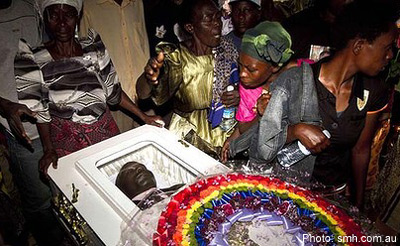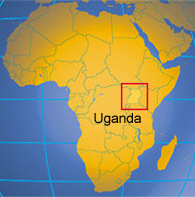Senthorun Raj, a senior policy adviser at Australia's NSW Gay and Lesbian Rights Lobby, wrote in the Sydney Morning Herald on Jan 31, 2011. The following is an excerpt:

Uganda is not unique in its brutal treatment of same-sex relationships. Many sub-Saharan African countries still attempt to erase the visibility of same-sex attracted or sex and/or gender diverse peoples. Much of the political infatuation with homosexuality in this vast geographical area has emerged as a product of British colonialism.
"Sodomy" offences or "acts against the order of nature", as they are commonly referred to, were introduced through colonialism as a way of policing all non-heterosexual or non-reproductive relationships. Recently, support for such laws was bolstered by evangelical Christian claims that homosexuality was a threat to the cohesion of African families.
Understanding the broader cultural context that facilitates homophobia does not erase the responsibility of the Ugandan government for the escalating homophobic violence in the country. Rather, while it is important to condemn such injustices, it is equally necessary to dispel the implications that all African countries are barbaric and essentially homophobic, while all Western countries are mythologised as places of acceptance and tolerance.

Homophobia, however, remains a pervasive problem — cutting across many geographic, political, religious and cultural boundaries.
What made David Kato's activism inspirational was that, instead of ignoring the complex transnational and cultural politics of homophobia, he worked across these spectrums to challenge it.
Rather than demonise Uganda or romanticise the West as a site of gay liberation, he worked to challenge the complex religious, national and neo-colonial politics that sought to denounce the lives and experiences of same-sex attracted or sex and/or gender diverse people living in places like Uganda. That is, Uganda was not by nature homophobic, nor was the West a beacon of hope that activists or lesbian, gay, bisexual and transgender people in Uganda should necessarily aspire to.
...
As we mourn David Kato's death, we must reflect at what was at stake in his work — an activism founded on dialogue rather than condemnation. He sought to ensure the recognition of lesbian, gay, bisexual and transgender people and communities in ways that validated their historical and cultural differences. By continuing in this legacy to combat homophobia wherever it exists, we can hope to do justice to the life of David Kato.
Reuters reported that the funeral "was attended by about 300 people including about 100 members of the country’s gay community who overcame fears of violence to attend the funeral. Many wore T-shirts featuring Kato's face with sleeves coloured with the gay pride flag. As the video shows, one of the activists grabbed the microphone from the pastor who was lashing out against homosexuality. But that did not stop the pastor from ranting. The activist then stepped up to the pulpit and shouted: "We have not come to fight. You are not the judge of us." It was also reported that as villagers refused to bury the coffin, friends of Kato, most of whom were gay, carried his coffin to the grave and buried it themselves.
